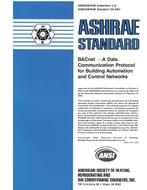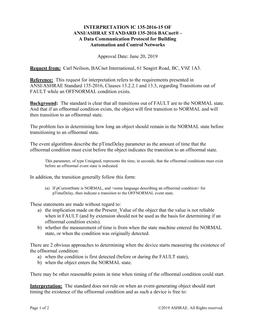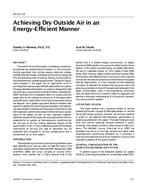A number of correlations for predicting convective heat transfer in glazing cavities have been developed over the years, but the most popular and most widely used, especially in North America, have been the correlations from ElSherbiny et al. (1982). This was one of the first correlations to include the Nusselt number dependence on the aspect ratio (cavity height to width). However, this dependence applies only for aspect ratios below 20, which are not representative for typical fenestration systems (windows and doors) that usually have higher aspect ratios. Experimental and analytical studies indicate that the Nusselt number dependence on the aspect ratio extends to much higher aspect ratios, although not as strongly as for aspect ratios less than 20.In this work, two-dimensional laminar natural convection heat transfer of air-filled, high aspect ratio rectangular cavities, subject to constant temperature boundary conditions on the vertical sides and zero heat flux boundary conditions on the horizontal surfaces, was analyzed using a finite element computational fluid dynamic solution method. The numerical analysis was performed over a range of aspect ratios from A = 5 to 110 for Rayleigh numbers within the laminar flow regime, which covers typical design conditions for fenestration systems and solar energy collectors. Based on the numerical results obtained, a new set of improved heat transfer correlations is developed as functions of both the Rayleigh Number (RaL) and aspect ratio (A). The new correlation resolves the dependence of the averaged Nusselt number (NuL) on higher aspect ratios. In addition, the new correlations apply not only to lower Rayleigh numbers and higher aspect ratio glazing cavity fenestration products but are also applicable to systems with lower aspect ratio cavities.
AUTHOR: Yie Zhao, Ph.D., Dragan Curcija, Ph.D., Joseph P. Power, Ph.D., William P. Goss, Ph.D., P.E
CITATION: Thermal Performance of the Exterior Envelopes of Buildings VII
KEYWORDS: December, Florida, 1998
YEAR: 1998
Citation: Thermal Performance of the Exterior Envelopes of Buildings VII
Product Details
- Published:
- 1998
- File Size:
- 1 file , 120 KB
- Product Code(s):
- D-8081


